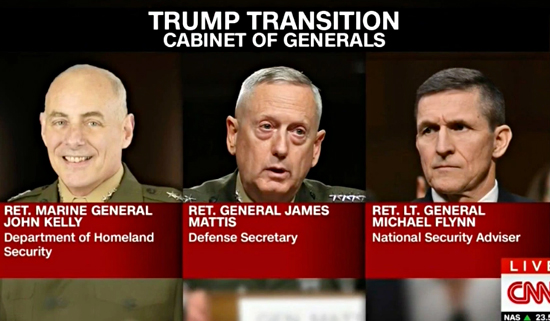
As the Trump administration prepares to deploy more U.S. troops to serve the needs of Saudi Arabia, I got to thinking about America’s forever wars in the Middle East and Central Asia. Back on August 17th, I clipped an article from the New York Times entitled “Debate Flares Over Afghanistan as Trump Considers Troop Withdrawal.” I noted the usual “arguments” presented by US military leaders and chickenhawks of both parties. That withdrawals would constitute a “retreat” that would be “premature” and “reckless.” That US troops had to remain to counter “an enduring terrorist threat.” That the Taliban enemy had perfected “weasel language” that would allow them to win any peace treaty. Making his usual appearance was General (retired) David Petraeus, who warned ominously that a complete withdrawal from Afghanistan “would be even more ill-advised and risky than the Obama administration’s disengagement from Iraq.” Petraeus, of course, has argued for a generational commitment to Afghanistan that could last as long as seventy years.
A few points to make here:
1. A US withdrawal wouldn’t be “premature.” Rather, it’s at least seventeen years overdue.
2. Terrorist threats are nothing new (I was reading about them on active duty in 1985). Moreover, they are often fed by the presence of US troops and bases as well as by “kinetic” actions, i.e. killing people, especially innocent civilians.
3. It’s funny that the Taliban can’t be trusted for its “weasel” language, whereas Americans always negotiate in good faith.
4. Why is Petraeus, a man who disgraced himself by illegally sharing classified information with his mistress, always the go-to guy for advice on any military situation?
Speaking of “premature withdrawals,” Tom Engelhardt noted how these same “arguments” were used to support the Iraq War in 2010. The war song always remains the same: any military withdrawal is “premature” without total US victory (whatever that may mean).
I swear if the US military had had its way, US forces would still be in Vietnam, and generals would still be arguing that withdrawal from Southeast Asia is “premature.”
In 2016, then-Candidate Trump deplored America’s dumb and costly wars, yet as President he now embraces the same tired tactics of the generals and their neo-con enablers. All these men have a great fear of premature withdrawal — are they confusing it with premature ejaculation?
Even as America’s leaders boast about having the world’s greatest and most powerful military, their actions betray fears of defeat, of a lack of potency, and a concern they’re being played (i.e. those “weasel” words). And indeed they are losing, they are showcasing their own impotence, they are being played, as long as these disastrous wars persist.
William J. Astore is a retired lieutenant colonel (USAF). He taught history for fifteen years at military and civilian schools and blogs at Bracing Views. He can be reached at wastore@pct.edu. Reprinted from Bracing Views with the author’s permission.




Only the world’s most powerful military in theory.
https://www.moonofalabama.org/2019/09/book-review-the-real-revolution-in-military-affairs.html
How much do we spend on “defense”, again?
Comparative analysis of recent conflicts in Yemen and Syria prove that huge budgets and fancy toys don’t equal power.
America’s biggest national security threat is the fact that Congress is controlled by the military industrial complex and its banking financiers. As long as meaningless wars are being fought under the guise of the bogus “War on Terror”, the defense industry is making money. If there’s no war, there’s no profit. Congress and the President are puppets of big business, the lobbyists are the strings. It’s as simple as that.